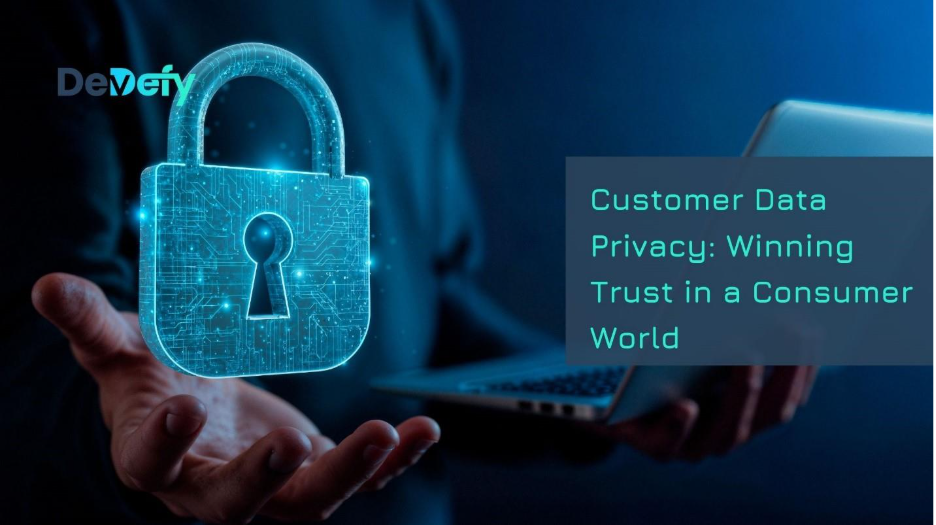
In today’s hyper-connected world, tech data is the new currency. Every interaction a customer has with your business, from signing up for a newsletter to completing a purchase, generates valuable data. But as the digital landscape grows, so do consumer expectations around privacy. Customers no longer blindly trust businesses with their information; they expect transparency, control, and security. Mishandling data isn’t just a legal risk; it can erode trust, damage your brand, and directly impact your bottom line.
A 2025 Deloitte survey revealed that over 70% of consumers are concerned about how their personal data is used, and many have abandoned brands they deemed careless with their information. For business leaders, this signals a clear priority: protect consumer data privacy or risk losing both trust and revenue.
Personalization has become a core expectation. Customers want tailored recommendations, relevant offers, and seamless experiences. Yet, personalization often relies on collecting and analyzing tech data, sometimes in ways that feel intrusive.
CMSWire notes that companies walk a “tightrope” between delivering personalized experiences and maintaining technology privacy, emphasizing that privacy-first personalization is essential to earning trust without compromising service.
This paradox, wanting highly personalized services without sacrificing customer privacy, has reshaped the way businesses approach customer data. Organizations that manage this balance effectively can differentiate themselves, building loyalty, and increasing lifetime customer value.

Trust is a currency in the digital age. Forbes reports that consumers are increasingly evaluating brands based on privacy practices, not just products or services. Brands that prioritize data privacy solutions communicate respect for customers, which strengthens relationships and drives engagement.
Global regulations like GDPR (Europe), CCPA (California), and emerging frameworks worldwide enforce strict rules on data collection, storage, and usage. Non-compliance can result in hefty fines, legal action, and reputational harm. Wavetec highlights that consumer data privacy is not optional; it is critical for both legal protection and brand credibility.
Companies that adopt privacy-first approaches can turn trust into a competitive differentiator. Organizations that focus on data security and privacy today are already gaining a significant edge in acquiring and retaining customers.
Without clear consent mechanisms, customers may feel their data is being used without permission. This not only undermines trust but also violates regulations like GDPR, which requires explicit consent for data processing.
Even when data is collected responsibly, weak security can lead to breaches. Companies must protect stored data with encryption, access controls, and regular vulnerability assessments to ensure data security and privacy.
Make your data practices visible. Inform customers about what data is collected, why it’s collected, and how it’s protected. Simple language and accessible privacy policies foster trust and reduce friction.
Example: Provide interactive dashboards showing users their stored consumer data privacy and offer options to opt-out or delete personal information.
Collect only essential information to deliver services. This reduces risk and demonstrates respect for customer privacy. Minimal data collection doesn’t mean limiting functionality, it means smarter data strategy.
Example: Use anonymous identifiers for analytics instead of personal data and focus on actionable insights rather than storing unnecessary details.
Implement robust technical safeguards:
Integrate privacy into software development from day one. At DevDefy, this approach ensures that products are secure, compliant, and customer-focused, rather than retrofitting technology privacy later.
Show customers why sharing data benefits them:
You don’t need complex overhauls or million-dollar systems to begin. Even small, intentional steps can dramatically improve your organization’s privacy posture and reputation.
Here’s how to get started right now:

Businesses that stay ahead of these shifts will not only protect customers but also future-proof their brand.
Predictive analytics drives personalization but when misused, it risks overreach. Responsible models focus on aggregated trends rather than invasive individual profiling.
At DevDefy, we recognize that customer privacy is foundational to successful digital experiences. That’s why we approach development with a minimal-data philosophy, collecting only what’s essential while ensuring robust data security and privacy and regulatory compliance.
Our solutions are designed to:
Looking to implement privacy-first technology privacy solutions in your software? Contact DevDefy for a FREE consultation and discover how we balance privacy with business growth.
In a world where consumers are increasingly aware of data misuse, businesses must prioritize customer data privacy not just for compliance, but as a strategic imperative. Transparency, minimal-data collection, privacy-by-design, and security safeguards are the pillars of trust that drive loyalty and long-term success.
Adopting a privacy-first mindset isn’t just ethical, it’s smart business. Companies like DevDefy demonstrate that you can protect consumer data privacy while still meeting operational goals, turning privacy into a competitive advantage.
